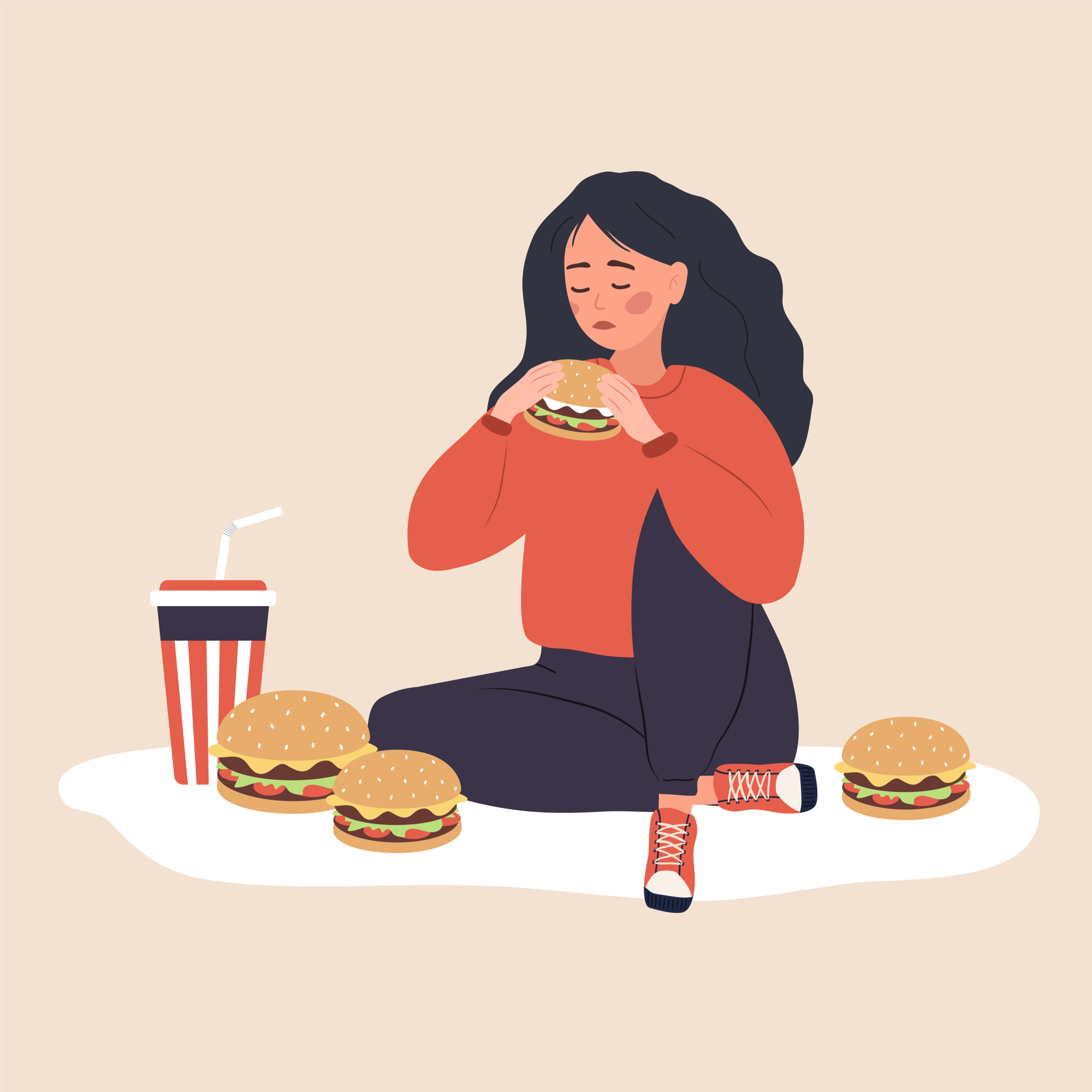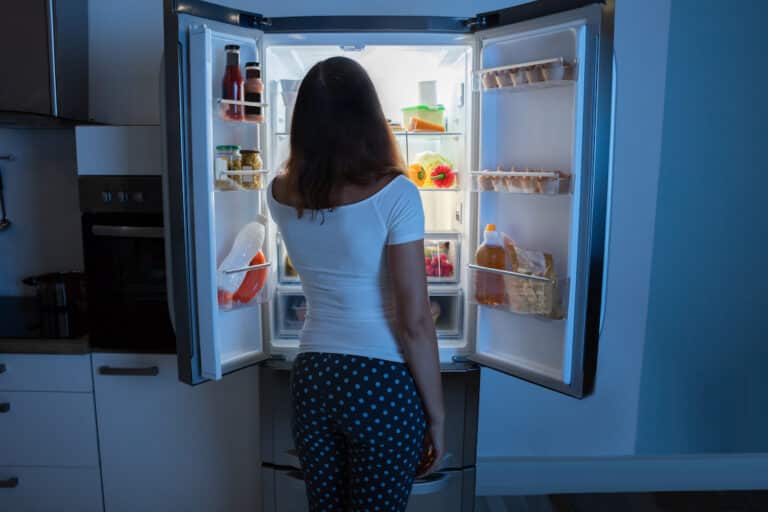Getting help for binge eating disorder can feel intimidating, especially when battling other co-occurring mental health issues. Many people struggling with binge eating also have depression, and addressing both the eating issues and depressive symptoms is essential for recovery. We will explore the link between binge eating and depression, as well as treatment options.
What is Binge Eating?
Binge eating typically looks and feels different than overeating. It is an eating pattern that feels distressing to the person suffering from the disorder and involves:
- Feeling out of control while eating
- Eating much faster than most people would eat
- Eating much more than most people would eat at one time under similar circumstances
- Hiding food or eating when no one else is around
- Becoming uncomfortably full after eating
When these types of eating episodes are frequent or significantly impact your health or quality of life, you may be diagnosed with binge eating disorder (BED).
What is the Link Between Depression and Binge Eating?
Research suggests that about 33% of people with BED also have major depressive disorder.1 Some people may initially have depression, and binge eating develops as a tool to manage their symptoms.
On the flip side, binge eating may also worsen depression. Those suffering from BED often feel intense guilt, shame, and embarrassment because of their eating patterns. They have often tried every diet possible to stop binge eating and feel defeated because of “a lack of willpower.” As you can imagine, this only intensifies depression rather than working toward healing.
Treating Binge Eating Disorder
Binge eating disorder does not stem from a lack of willpower, but is instead a coping mechanism that some people develop to manage their emotions. The answer to binge eating isn’t dieting or “trying harder.” There are options to not only stop binge eating, but to feel confident around food.
Cognitive Behavioral Therapy (CBT)
This form of therapy recognizes that our thoughts, emotions, and behaviors are all related. Our behaviors are not random, but stem from the thoughts and emotions prior to engaging in that behavior. However, when our thoughts about a situation are untrue or unhelpful, this can lead to difficult emotions that then lead to eating disorder behaviors.
Medication
There are several types of medication that can be effective in managing depressive symptoms and can be an effective part of eating disorder treatment. Common medication options include:1
- Selective Serotonin Reuptake Inhibitors (SSRIs)
- Serotonin-Norepinephrine Reuptake Inhibitors (SNRIs)
- Benzodiazepines
- Tricyclic Antidepressants
It’s important to work with your doctor or advanced practice provider to determine which medication options may be right for you.
Treatment for Binge Eating and Depression at Magnolia Creek
Our compassionate team of eating disorder specialists understand the complexities of binge eating. Through treatment, you can learn new tools and coping skills so that you don’t need your disorder to regulate your emotions. You will also have the opportunity to participate in nutrition therapy to help nourish your body and heal your relationship with food. To learn more about treatment at Magnolia Creek, complete our contact form or give us a call at 205-678-4373.
References:
-
- https://www.nationaleatingdisorders.org/anxiety-depression-obsessive-compulsive-disorder




